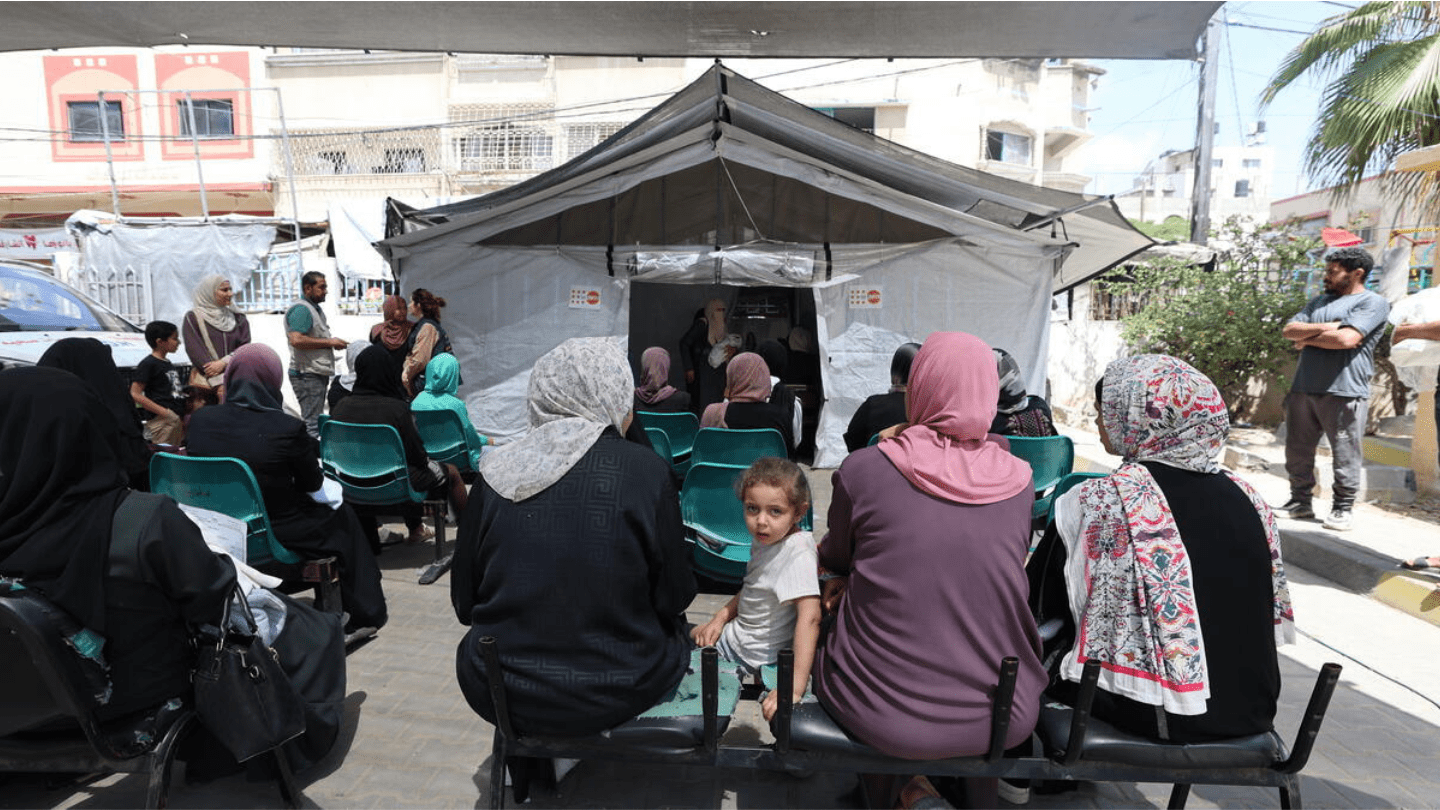Cairo, 19 May 2025– “UNFPA is deeply concerned about the potential closure of the only safe house for women in Gaza as Israel’s latest forced displacement orders in Deir Al-Balah and Khan Younis render it inaccessible.
The threats to women and girls in Gaza extend far beyond the immediate horrors of bombs, bullets and starvation. As repeated displacement forces families into overcrowded living conditions, without privacy or sanitation, the risks of gender-based violence, sexual exploitation and abuse are escalating alarmingly, further stripping them of their dignity and jeopardizing their survival.
Today, the majority of women in Gaza are living in constant fear for their safety – on the street, at aid distribution points, and in makeshift shelters they share with extended families. Over the past four months, more than 40 survivors of violence are known to have ended their lives. Frontline providers are reporting that thoughts of suicide are increasing among women survivors, highlighting an urgent mental health crisis.
As displaced women continue to reach out for help, protection services are collapsing. Fewer than half of women and girls’ safe spaces remain functional—and most of those are operating only partially, prioritizing emergency cases. Many providers have had to shift to remote services due to fuel shortages and movement restrictions, while hygiene and medical supplies are nearly exhausted.
Despite severe access restrictions, security threats, and the ongoing aid blockade, UNFPA and partners remain on the ground and continue to deliver life-saving services for women and girls across Gaza, but the response has been massively scaled back and falls far short of meeting increasing needs.
The normalization of violence, the systematic violation of women and girls’ rights, and the suppression of survivors’ voices risk erasing decades of progress in Gaza. Women and girls, and the services they rely on, must be protected in line with international humanitarian law.
UNFPA renews its urgent appeal to all states with influence over parties to the conflict to use their leverage to reinstate a ceasefire and ensure the unimpeded delivery of life-saving humanitarian aid into Gaza. Women and girls’ lives, safety, and well-being depend on it.


